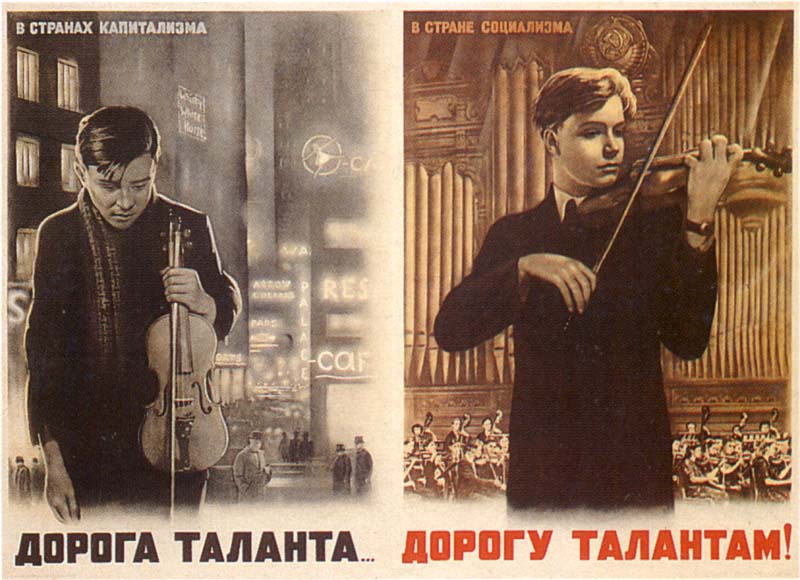It looks like you're using an Ad Blocker.
Please white-list or disable AboveTopSecret.com in your ad-blocking tool.
Thank you.
Some features of ATS will be disabled while you continue to use an ad-blocker.
0
share:

I am pretty interested in State Capitalism. It interests me because it is so successful. The rise of China under State Capitalism has been phenomenal. State Capitalism also interests me because it seems to be a decent happy medium that both socialists and capitalists might be open to. State Capitalism 'market economy' offers a mixture of state-owned enterprises with an open-market economy. In many ways, a State Capitalist 'market economy' is the best of both worlds.
Unlike capitalist western economies, China has a long term plan. China does not make regular shifts between conflicting,short term,left/right political policy. China has one ruling party which can focus on seeing their plans through. Chinas plan seems to be along the lines of a 'Stalinist Two Stage Revolution'
The two-stage theory (or stagism) is the Marxist political theory which argues that underdeveloped countries, such as Tsarist Russia, must first pass through a stage of bourgeois democracy before moving to a socialist stage.[1] The two stage theory was applied to countries worldwide which had not passed through the capitalist stage.
en.wikipedia.org...
The socialist market economy of modern China consists of a mixture of state-owned enterprises with an open-market economy. It is based on Deng Xiaoping's political platform of socialism with Chinese characteristics. It is the economic system in the People's Republic of China since the Chinese economic reform started in 1978 (see Economy of the People's Republic of China). Despite its formal title, this system has been widely cited as a form of state capitalism.
en.wikipedia.org...
The socialist market economy is a concept first proposed by Deng Xiaoping in order to incorporate the market into the planned economy in the People's Republic of China, and later, to the Đổi Mới in Vietnam.[2] Following its implementation, this economic system has supplemented the centrally planned economy in the People's Republic of China, with high growth rates in GDP during the past decades have been attributed to it. Within this model, privately owned enterprises have become a major component of the economic system alongside the central state-owned enterprises and collective / township village enterprises.
This type of economic system is defended from a Stalinist perspective which states that a fully developed socialist planned economy can only come into existence after first establishing the necessary and comprehensive commodity market economy and letting it fully develop until it exhausts its historical stage and gradually transforms itself into a planned economy (the Stalinist Two-Stage theory of revolution).
Now if China has embarked on a 'Stalinist Two Stage Revolution' we have to ask ourselves at what stage of the revolution are they now at? Seems to me that they are at the end of the first stage. They have established the necessary and comprehensive commodity market economy and let it fully develop until it exhausts its historical stage havent they? If not, they must be close. So the next step in the 'Stalinist Two Stage Revolution' is to allow China to gradually transform itself into a planned economy.
Communist leaning China holds the future of capitalism in its hands in many ways. Is Chinas next move a pivot? Will we see them pull back the market economy and move to a more strict planned / command economy?
China is predicted to overtake the United States as the worlds largest economy in just a few short years. China has consolidated its power with the BRICS nations alliance and the creation of the BRICS Bank. China is poised to assert itself as the new sole superpower when the next GFC hits the capitalist west very shortly. Will the new superpower continue to move to a more open free market economy? Or will the great nation of China,with a deep history of communism, see their 'Stalinist Two Stage Revolution' through?
As the next great superpower, will China bring about global socialism? In addition to the powerful BRICS nations, China has a very long list of socialist leaning friends in South America and Africa. The next GFC could very will be the death of capitalism. I will [SNIP] on its grave. I am banking on China seeing the 'Stalinist Two Stage Revolution' through. I will cheer China in all the way.
Death to capitalism!
All hail China!
Viva la Stalinist Two Stage Revolucion!



edit on 9-6-2012 by Germanicus because: (no reason given)
I do enjoy your posts, but you seem to be swinging between 2 undesirable political ideologies of NAZISM and Communist China.
You seem to gloss over or completely ignore the human rights violations and genocide committed by these political and ideolgical movements.
You seem to gloss over or completely ignore the human rights violations and genocide committed by these political and ideolgical movements.
Originally posted by woodwardjnr
I do enjoy your posts, but you seem to be swinging between 2 undesirable political ideologies of NAZISM and Communist China.
You seem to gloss over or completely ignore the human rights violations and genocide committed by these political and ideolgical movements.
I prefer National Socialism to anything. That has to be the most hated ism there is. I think the economics of National Socialism work. I am of the belief that 'nazi' and National Socialism are two different things. I also dont think National Socialism has to be facism.
But at the end of the day I am anti-capitalist.
I started my anti-capitalist journey by becoming interested in communism. I like Karl Marx and I agree with alot in relation to basic communism. Its funny that I have ended up leaning toward National Socialism since National Socialism and Communism dont mix.
I honestly think there is a place for a Free Market under socialism. I do not like a planned / command economy. Something like National Socialism or State Capitalism offers a more free society while at the same time protecting the interests of the State and citizens. So I prefer National Socialism or State Capitalism to Communism but in my opinion,anything is better to the corporatist imperial capitalism that we have today.
edit- and many consider Abraham Lincoln to be a mass murderer. I do not associate genocide with any ism. The basic theories do not involve genocide. You could argue that genocide has occured under capitalism and early capitalism.
edit on 9-6-2012 by Germanicus because: (no reason
given)
Folks there is no way in this hell called Socialism/Communism/Fascism/Nazi government scheme that a human is allowed to be a human. These schemes de
humanize the population and exploit the resources for an even smaller group than are running the world through Goldman Sachs and the Rothchild
empires. I would prefer we apply the laws and common sense rules promulgated to keep the financial wolves from eating the sheeple that first GW Bush
and now the Obama adminstrations have allowed to go unchecked. THAT has done more harm to captalism because it ignored the basic premise that crooked
dealings deserve incarcaration. There is no too big to fail when people get shat upon for the profit of greedy bean counters who are greatly
outnumbered by the masses.What we have witnessed is the assualt on personal freedoms, assualt on being able to grow rich from your own endeavors and
the takeover of the agencies who have regulations to enforce so these criminals are allowed to keep their booty!
In short the criminals are running the show and have taken key position in this Republic. We have high crimes that stink to high heaven and eventually the people are going to be tired of the proverbial boot on their throats and they will take these criminals to task. I am certain if we allow their crimes to go unchecked, some of which probably involve murder, then we will already have a commofascist situation worldwide instead of the wishful thinking of useful idiots that we become one. The justice system must act according to the rule of law in these matters or there isn't a Republic to convert.
In short the criminals are running the show and have taken key position in this Republic. We have high crimes that stink to high heaven and eventually the people are going to be tired of the proverbial boot on their throats and they will take these criminals to task. I am certain if we allow their crimes to go unchecked, some of which probably involve murder, then we will already have a commofascist situation worldwide instead of the wishful thinking of useful idiots that we become one. The justice system must act according to the rule of law in these matters or there isn't a Republic to convert.
edit on 9-6-2012 by Justoneman because: (no reason given)
edit on 9-6-2012 by Justoneman because: (no reason
given)
reply to post by Germanicus
i present to you: anarchy! forget all that you have heard and learn from yourself what really is libertarian socialism
here's some info
www.chomsky.info...
en.wikipedia.org...
i present to you: anarchy! forget all that you have heard and learn from yourself what really is libertarian socialism
here's some info
www.chomsky.info...
For the anarchist, freedom is not an abstract philosophical concept, but the vital concrete possibility for every human being to bring to full development all the powers, capacities, and talents with which nature has endowed him, and turn them to social account. The less this natural development of man is influenced by ecclesiastical or political guardianship, the more efficient and harmonious will human personality become, the more will it become the measure of the intellectual culture of the society in which it has grown.
I am a fanatic lover of liberty, considering it as the unique condition under which intelligence, dignity and human happiness can develop and grow; not the purely formal liberty conceded, measured out and regulated by the State, an eternal lie which in reality represents nothing more than the privilege of some founded on the slavery of the rest; not the individualistic, egoistic, shabby, and fictitious liberty extolled by the School of J.-J. Rousseau and other schools of bourgeois liberalism, which considers the would-be rights of all men, represented by the State which limits the rights of each -- an idea that leads inevitably to the reduction of the rights of each to zero. No, I mean the only kind of liberty that is worthy of the name, liberty that consists in the full development of all the material, intellectual and moral powers that are latent in each person; liberty that recognizes no restrictions other than those determined by the laws of our own individual nature, which cannot properly be regarded as restrictions since these laws are not imposed by any outside legislator beside or above us, but are immanent and inherent, forming the very basis of our material, intellectual and moral being -- they do not limit us but are the real and immediate conditions of our freedom.
en.wikipedia.org...
Libertarian socialism (sometimes called social anarchism,[1][2] and sometimes left libertarianism)[3][4] is a group of political philosophies that promote a non-hierarchical, non-bureaucratic society without private property in the means of production. Libertarian socialists believe in converting present-day private property into the commons or public goods, while retaining respect for personal property[5]. Libertarian socialism is opposed to coercive forms of social organization. It promotes free association in place of government and opposes the social relations of capitalism, such as wage labor.[6] The term libertarian socialism is used by some socialists to differentiate their philosophy from state socialism[7][8] or by some as a synonym for left anarchism.[1][2][9] Adherents of libertarian socialism assert that a society based on freedom and equality can be achieved through abolishing authoritarian institutions that control certain means of production and subordinate the majority to an owning class or political and economic elite.[10] Libertarian socialism also constitutes a tendency of thought that promotes the identification, criticism, and practical dismantling of illegitimate authority in all aspects of life. Accordingly, libertarian socialists believe that "the exercise of power in any institutionalized form—whether economic, political, religious, or sexual—brutalizes both the wielder of power and the one over whom it is exercised".[11] Libertarian socialists generally place their hopes in decentralized means of direct democracy such as libertarian municipalism, citizens' assemblies, trade unions, and workers' councils.[12] Political philosophies commonly described as libertarian socialist include most varieties of anarchism (especially anarchist communism, anarchist collectivism, anarcho-syndicalism,[13] mutualism[14]) as well as autonomism, communalism, participism, libertarian Marxist philosophies such as council communism and Luxemburgism,[15] and some versions of "utopian socialism[16] and individualist anarchism.[17][18][19]
reply to post by mortalha
Hey. I like Libertarian Socialism. The only problem is that it is far too radical for the general population. When Austerity hits the West I am expecting people to be more open to new ideas. I see Anarchy as a bridge too far for most people. I think that National Socialism or State Capitalism will be easier to sell. I think we can use National Socialism to transition to something closer to Anarchy in the future. Similar to the Stalinist Two Stage Revolution.
But I agree. Libertarian Socialism is good Libertarian Socialism was what I was into before I decided that National Socialism is more realistic and easier to sell. National Socialism isnt easy to sell if you call it National Socialism but the concepts are less of a shock for the capitalist than say full blown communism or libertarian socialism.
Libertaian Socialism
Hey. I like Libertarian Socialism. The only problem is that it is far too radical for the general population. When Austerity hits the West I am expecting people to be more open to new ideas. I see Anarchy as a bridge too far for most people. I think that National Socialism or State Capitalism will be easier to sell. I think we can use National Socialism to transition to something closer to Anarchy in the future. Similar to the Stalinist Two Stage Revolution.
But I agree. Libertarian Socialism is good Libertarian Socialism was what I was into before I decided that National Socialism is more realistic and easier to sell. National Socialism isnt easy to sell if you call it National Socialism but the concepts are less of a shock for the capitalist than say full blown communism or libertarian socialism.
Libertaian Socialism
Originally posted by Germanicus
Ah yes! Under communism the arts flourish!
Yet you can't sign your name to your artwork,
That about sums it up for me.
edit on 9-6-2012 by Asktheanimals because: (no reason given)
reply to post by Asktheanimals
I think socialism and communism put more of a focus on the arts.
Capitalism put more of a focus on trash and low brow pop culture.
Capitalism erodes society by giving the arts little importance.
Capitalism is devolution.
edit- the propaganda poster is making a point about potential.It is saying that talents go to waste under capitalism.
I think socialism and communism put more of a focus on the arts.
Capitalism put more of a focus on trash and low brow pop culture.
Capitalism erodes society by giving the arts little importance.
Capitalism is devolution.
edit- the propaganda poster is making a point about potential.It is saying that talents go to waste under capitalism.
edit on 9-6-2012 by
Germanicus because: (no reason given)
Originally posted by Germanicus
and many consider Abraham Lincoln to be a mass murderer. I do not associate genocide with any ism. The basic theories do not involve genocide. You could argue that genocide has occured under capitalism and early capitalism.
Abraham Lincoln was responsible for an unlawful and massively destructive war between the states, yes, and people like General Sherman basically raped and pillaged, but Lincoln you won't see killing thousands of his own civilians to ensure he remains in power, or to silence dissenting voices. He did fight a war with that goal in mind(or rather, to 'defend the union'), and that is the bloodiest war in American history. He just didn't kill his own civilians. Sure, he suspended Habeus Corpus and jailed people who didn't like the war, but he never committed mass murder against his own citizens.
Stalin, though, murdered millions and millions of his own so that he could remain in power. Ditto Hitler. Ditto Mao to a slightly lesser extent.
Putting absolute authority in the hands of the state is just asking to eventually smacked down by the iron fisted hand that feeds you.
edit on
9-6-2012 by Mkoll because: (no reason given)
reply to post by Mkoll
I am not exactly suggesting a dictator but I do think a dictator presents alot of positives if it is the right guy. The early Romans used dictators and it worked quite well. I think that the actions of Hitler and Stalin have more to do with the individual than any ism that they represented.
edit- the thread is more about how people may be underestimating China and I have not heard anyone else talk about the 'stagism' that may be part of their plans. People like to think China is content to just play second fiddle to the United States for years to come. I do not think China is going to rise the way they have only to stop before the finish line. I think they have a plan and I think the plan is a Stalinist Two Stage Revolution. I think the second phase starts soon.
I am not exactly suggesting a dictator but I do think a dictator presents alot of positives if it is the right guy. The early Romans used dictators and it worked quite well. I think that the actions of Hitler and Stalin have more to do with the individual than any ism that they represented.
edit- the thread is more about how people may be underestimating China and I have not heard anyone else talk about the 'stagism' that may be part of their plans. People like to think China is content to just play second fiddle to the United States for years to come. I do not think China is going to rise the way they have only to stop before the finish line. I think they have a plan and I think the plan is a Stalinist Two Stage Revolution. I think the second phase starts soon.
edit on 9-6-2012 by Germanicus because: (no reason given)
The oldest inclusive sovereign democracy in the world is the six nation of the Iroquois
( the US constitution owes more then a passing debt to it too)
I doubt you'll find any other continious systems that have survived as well or as long
I say go with what works
( the US constitution owes more then a passing debt to it too)
I doubt you'll find any other continious systems that have survived as well or as long
I say go with what works
edit on 9-6-2012 by Danbones because: (no reason given)
reply to post by Danbones
I would not say that I am a great fan of the American Constitution.
I also do not think we have settled on anything that 'works'. The world is a mess.
I would not say that I am a great fan of the American Constitution.
I also do not think we have settled on anything that 'works'. The world is a mess.
(Cue the fife and drum in the background)
I would point you to Plato. Paraphraring his words, "the best government system is one where there is a selfless king. A selfless king does things for the betterment of his subjects. Making choices that help the kingdom over his own personal wants. No one is selfless. Therefore even though it is a horrible choice, a Democracy is the best form of Government."
Granted Democracy is two wolves and a sheep deciding on dinner. That is why our Constitution describes a Democratic Republic. That document has given hope to the downtrodden all across this Earth. What I feel we have withnessed since the JFK coup is the obfuscation of truth for the sake of stealing that hope back and our basic inalienable rights away. This is done in an apparent One World Order handover of American soveriengty through a treasonous avoidance of abiding by the laws of this land set about for the preservation of freedom and fair commerce.
At some point the rule of law that has been ignored will backfire on their collective heads. The question is will it be after many years of a Communist dictatorship worldwide or just before in our immeidiate future? Will the people who have the ability to administer justice do it or will the people have to overthrow a corrupt and greedy leadership who feel like we are their servants and not the other way around?
I would point you to Plato. Paraphraring his words, "the best government system is one where there is a selfless king. A selfless king does things for the betterment of his subjects. Making choices that help the kingdom over his own personal wants. No one is selfless. Therefore even though it is a horrible choice, a Democracy is the best form of Government."
Granted Democracy is two wolves and a sheep deciding on dinner. That is why our Constitution describes a Democratic Republic. That document has given hope to the downtrodden all across this Earth. What I feel we have withnessed since the JFK coup is the obfuscation of truth for the sake of stealing that hope back and our basic inalienable rights away. This is done in an apparent One World Order handover of American soveriengty through a treasonous avoidance of abiding by the laws of this land set about for the preservation of freedom and fair commerce.
At some point the rule of law that has been ignored will backfire on their collective heads. The question is will it be after many years of a Communist dictatorship worldwide or just before in our immeidiate future? Will the people who have the ability to administer justice do it or will the people have to overthrow a corrupt and greedy leadership who feel like we are their servants and not the other way around?
edit on 9-6-2012 by Justoneman because: (no reason given)
reply to post by Germanicus
As a working artist I can attest to the difficulty of being creative in a capitalist society. I've seen more crap at galleries that I would be embarrassed to hang on my wall being touted as the "next great thing". No talent required, just shock value is enough.
I have no idea of how the arts would function under communism but it seems to me that anything outside or against party doctrine would be snuffed out. You would never have music like Queen, the Dead Kennedys or Slayer in a communist state.
To their credit communist states do very well at the classical arts and produce great talents yet the same could be said of the US or Britain though I'll give the commies the edge on that one.
.
Pop/rock music came from western democratic nations and was a viable medium until corporate entities like Clearchannel and Sony took over the market and made it even harder for independent artists to find work and maintain an income.
Now we have rap and lady gaga garbage 24/7.
Art is a reflection of culture and in that regard you are correct to say that capitalism is a failing system.
As a working artist I can attest to the difficulty of being creative in a capitalist society. I've seen more crap at galleries that I would be embarrassed to hang on my wall being touted as the "next great thing". No talent required, just shock value is enough.
I have no idea of how the arts would function under communism but it seems to me that anything outside or against party doctrine would be snuffed out. You would never have music like Queen, the Dead Kennedys or Slayer in a communist state.
To their credit communist states do very well at the classical arts and produce great talents yet the same could be said of the US or Britain though I'll give the commies the edge on that one.
.
Pop/rock music came from western democratic nations and was a viable medium until corporate entities like Clearchannel and Sony took over the market and made it even harder for independent artists to find work and maintain an income.
Now we have rap and lady gaga garbage 24/7.
Art is a reflection of culture and in that regard you are correct to say that capitalism is a failing system.
China is successful as a prime result of the influx of FDI from western nations, primarily the United States, beginning during the Cold War. Without
the western knowledge and capital, the Chinese would still be knee deep in rice paddies.
This may sound harsh, but this comes from someone who has lived in Asia for over ten years.
This may sound harsh, but this comes from someone who has lived in Asia for over ten years.
edit on 11-6-2012 by deessell because:
err...grammar
new topics
-
Christmas Car Near Detroit…
Automotive Discussion: 54 minutes ago -
Assetto Corsa EVO - a New Chapter in Simracing starts January 16th
Video Games: 3 hours ago -
The Phenomenon documentary by James Fox
Aliens and UFOs: 7 hours ago -
New UK Petition - Close the borders! Suspend ALL immigration for 5 years!
Regional Politics: 8 hours ago -
The Looking Glass - Episode 3: The Path of Least Resistance
Short Stories: 10 hours ago
top topics
-
Treasury Secretary Janet Yellen Says The USA Will Be in Debt Default in Jan 2025 - Unless...
Mainstream News: 16 hours ago, 8 flags -
The Phenomenon documentary by James Fox
Aliens and UFOs: 7 hours ago, 7 flags -
Credit card debt
Relationships: 12 hours ago, 7 flags -
President-elect Trump asks the Supreme Court to Let Tik-Tok Continue Operating in the U.S..
Mainstream News: 12 hours ago, 6 flags -
Danish Prime Minister said to keep 3 days worth of canned goods on hand
World War Three: 17 hours ago, 5 flags -
Christmas Car Near Detroit…
Automotive Discussion: 54 minutes ago, 4 flags -
Trash To Treasure: Dumpster Diving With Mike The Scavenger
General Chit Chat: 17 hours ago, 4 flags -
The Looking Glass - Episode 3: The Path of Least Resistance
Short Stories: 10 hours ago, 3 flags -
New UK Petition - Close the borders! Suspend ALL immigration for 5 years!
Regional Politics: 8 hours ago, 2 flags -
Assetto Corsa EVO - a New Chapter in Simracing starts January 16th
Video Games: 3 hours ago, 1 flags
active topics
-
Post A Funny (T&C Friendly) Pic Part IV: The LOL awakens!
General Chit Chat • 7965 • : KrustyKrab -
Trump's idea to make Canada the 51st US state: 'Potential is massive'
Mainstream News • 102 • : Oldcarpy2 -
-@TH3WH17ERABB17- -Q- ---TIME TO SHOW THE WORLD--- -Part- --44--
Dissecting Disinformation • 3831 • : Thoughtful3 -
Russia Ukraine Update Thread - part 3
World War Three • 6899 • : gortex -
Treasury Secretary Janet Yellen Says The USA Will Be in Debt Default in Jan 2025 - Unless...
Mainstream News • 28 • : Coelacanth55 -
Plane Crash Today --Azerbaijanian E190 passenger jet
Mainstream News • 60 • : Oldcarpy2 -
The Looking Glass - Episode 3: The Path of Least Resistance
Short Stories • 4 • : BingoMcGoof -
President-elect Trump asks the Supreme Court to Let Tik-Tok Continue Operating in the U.S..
Mainstream News • 20 • : AgarthaSeed -
Elon Musk futurist?
Dreams & Predictions • 22 • : cherokeetroy -
Christmas Car Near Detroit…
Automotive Discussion • 0 • : JJproductions
0

